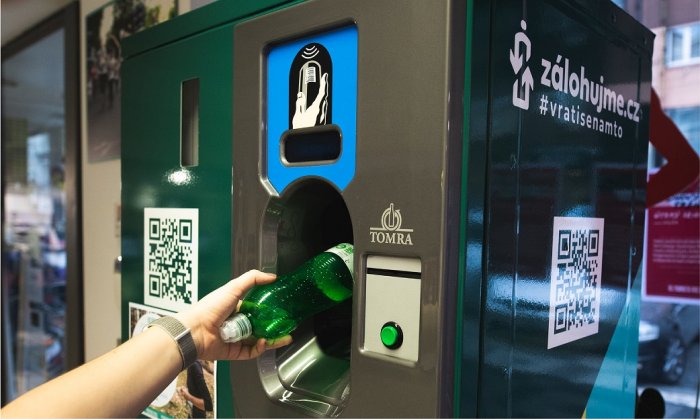Functional model of deposit system for beverage packaging in the Czech Republic according to study of prof. Mejstřík

The model of deposit system for beverage packaging tailor-made for the Czech market was designed by the team of EEIP consultancy company under the leadership of the late professor Michal Mejstřík. The study was commissioned by Mattoni 1873, founding member of Zálohujme.cz, who strives for circular and sustainable beverage industry in the Czech Republic. The beverage industry could become, also thanks to deposit, the first fully circular idnustry in Czechia. The implementation of deposit system is hindered by lacking legislation.
The first discussion about beverage packaging deposit system took place in 2007, when the proposal was brought by then minister of environment Martin Bursík.
“Economical motivation to sorting and recycling of PET bottles and aluminium cans via deposit system ensures that almost 100 % of beverage packaging is recycled and will continue to circulate. And that is the basic principle of circular economy. It is the value of the packaging that prevents littering, landfilling or incineration. I welcome the producers’ initiative to implement deposit system, which has overwhelming support of the public,” says Martin Bursík, the head of Prague city council’s committee for sustainable energy and climate, under whose recommendation the City of Prague voiced support for deposit last year."
Deposit system for PET bottles and cans is long-term supported by Zálohujme.cz initiative, co-founded by Mattoni 1873. There are numerous expert studies on this topic. All of which agree that PET bottles and cans deposit would be desirable for the Czech Republic, it would benefit the environment and help fulfil the EU targets.
“My view on deposit developed over the years,” says Alessandro Pasquale, Mattoni 1873 CEO. “Fourteen years ago, I did not agree with Mr. Bursík. Now, I know that the deposit system is indispensable part of the beverage industry’s future, which lies in circular economy, i.e. recycling “bottle to bottle” or “can to can”, adds Mr. Pasquale.
The target of the study was to model a way, how the Czech Republic could reach the two mandatory EU targets: level of sorting of single-use PET bottles and level or recycled content in new PET bottles. The study designs economically viable model of deposit system for PET bottles and cans.
„While mapping foreign experience, we’ve reached the conclusion that levels of PET bottles collection are significantly higher in countries with deposit system. In all countries, which already now reach 90 % PET bottles collection, there is deposit system in place. At the same time, no country without deposit system reached 90 % PET bottles collection rate,” says Dita Tesárková, Associate Director in EEIP company. The 90 % level of PET bottles collection is one of the EU targets, to fulfilment of which by 2029 the Czech Republic agreed.
The model designs a centralized system run by an operator – a non-profit entity – founded by beverage industry. The system is mandatory for producers, importers of beverage packaging as well as for the retail. The deposit is 3 CZK for all single use beverage PET bottles and cans of 0,1 to 3 l.
„All costs linked with building and operating the system are carried by producers and importers of beverages in relevant packaging. However, these do benefit at the end from closing the circular loop and are not therefore forced to transfer the cost to consumers. The consumer would suffer loss only if they decide voluntarily not to return the packaging back to the system,” describes the model Dita Tesárková. The model supposes that retailer’s costs will be compensated by the system operator via manipulation fees, which will take into account both operational as well as investment cost of both modes of take back. The whole system is non-profit.
“It would be great if the study motivated our legislators to consider positive approach towards centralized deposit system implementation. Such a change might also be triggered by the experience from the Slovak deposit system, which is now being set up and will be in operation next year,” closes Alessandro Pasquale.
